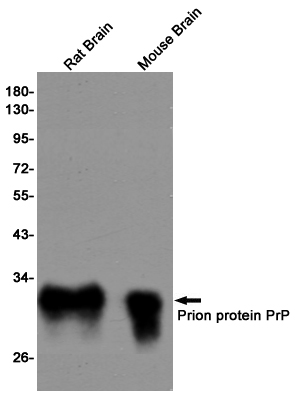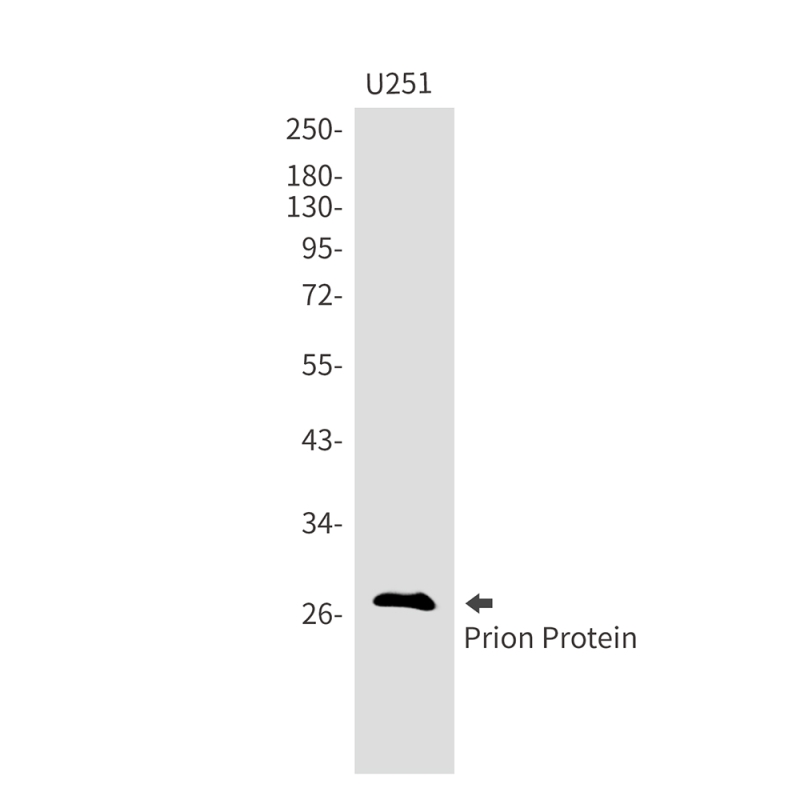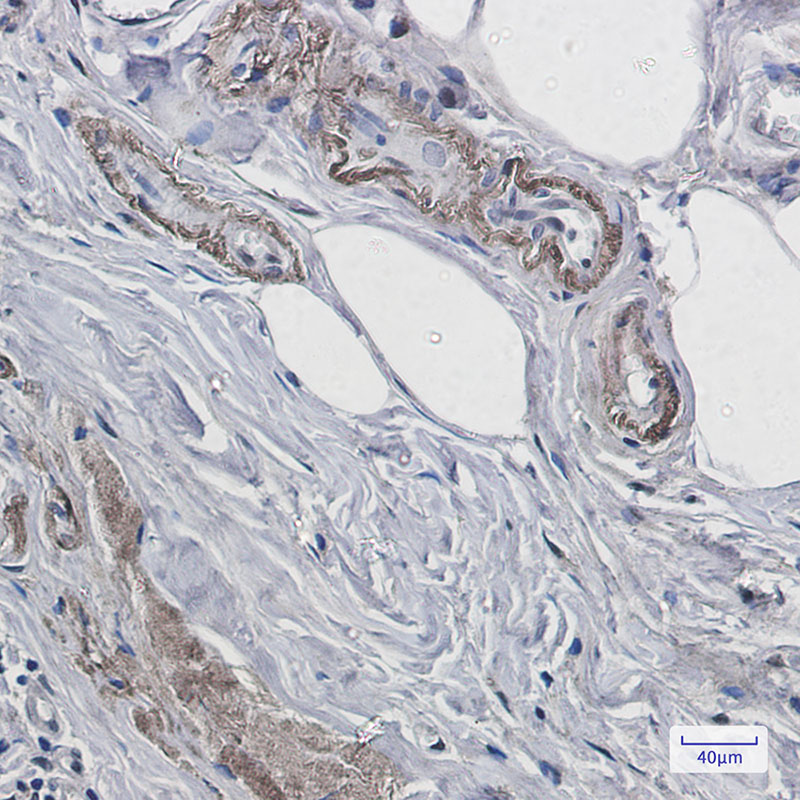


| WB | 1/500-1/1000 | Human,Mouse,Rat |
| IF | 咨询技术 | Human,Mouse,Rat |
| IHC | 1/50-1/100 | Human,Mouse,Rat |
| ICC | 技术咨询 | Human,Mouse,Rat |
| FCM | 咨询技术 | Human,Mouse,Rat |
| Elisa | 咨询技术 | Human,Mouse,Rat |
| Aliases | CJD; GSS; PrP; PRNP; ASCR; KURU; PRIP; PrPc; CD230; AltPrP; Prion protein; PrP27-30; PrP33-35C |
| Entrez GeneID | 5621 |
| WB Predicted band size | Calculated MW: 28 kDa; Observed MW: 28 kDa |
| Host/Isotype | Rabbit IgG |
| Antibody Type | Primary antibody |
| Storage | Store at 4°C short term. Aliquot and store at -20°C long term. Avoid freeze/thaw cycles. |
| Species Reactivity | Human,Mouse,Rat |
| Immunogen | A synthetic peptide of human Prion protein PrP |
| Formulation | Purified antibody in TBS with 0.05% sodium azide,0.05%BSA and 50% glycerol. |
+ +
以下是3篇关于Prion Protein抗体的经典文献示例(文献信息及摘要概括):
1. **文献名称**:Monoclonal antibodies define conformation-dependent epitopes of prion protein
**作者**:Korth C. et al.
**摘要**:该研究开发了特异性识别PrP^C(细胞型朊蛋白)和PrP^Sc(致病型朊蛋白)构象表位的单克隆抗体,揭示了抗体通过区分蛋白折叠状态用于朊病毒疾病诊断的潜力。
2. **文献名称**:Therapy for prion diseases: Insights from the use of monoclonal antibodies
**作者**:White A.R. et al.
**摘要**:通过体外和动物实验证明,靶向PrP^C的某些单克隆抗体可抑制PrP^Sc的聚集并延缓疾病进展,为抗体介导的朊病毒治疗策略提供了实验依据。
3. **文献名称**:Cellular prion protein is essential for oligomeric Aβ-induced neuronal cell death
**作者**:Enari M. et al.
**摘要**:研究发现,抗体阻断PrP^C与β淀粉样蛋白(Aβ)寡聚体的结合可减轻神经毒性,提示PrP抗体在阿尔茨海默病等神经退行性疾病中的潜在应用。
4. **文献名称**:Epitope mapping of the human prion protein using monoclonal and scFv antibodies
**作者**:Browning S. et al.
**摘要**:通过抗体表位定位技术确定了PrP的核心结合区域(如N端重复区域),为设计高亲和力抗体探针或治疗药物提供了结构基础。
(注:以上文献为领域内代表性研究,实际引用时请核对具体发表年份及期刊信息。)
The prion protein (PrP) is a cell-surface glycoprotein predominantly expressed in the nervous system. Its normal cellular isoform, PrPC, is involved in neuroprotective functions, copper homeostasis, and synaptic signaling. However, misfolded pathogenic conformers (PrPSc) aggregate into amyloid fibrils, causing transmissible spongiform encephalopathies (TSEs) like Creutzfeldt-Jakob disease in humans and bovine spongiform encephalopathy in animals. PrPSc propagates by converting PrPC into its toxic form through templated refolding.
Antibodies targeting PrP are critical tools for studying its biology and pathology. They enable differentiation between PrPC and PrPSc conformations, detection of disease-associated aggregates, and exploration of PrP's physiological roles. Monoclonal antibodies, engineered for high specificity, are widely used in diagnostics (e.g., Western blot, ELISA) and research to map epitopes or inhibit PrPSc propagation. Polyclonal antibodies, recognizing multiple epitopes, aid in detecting conformational changes.
Challenges include structural similarities between isoforms, necessitating antibodies with minimal cross-reactivity. Some antibodies bind PrPC without distinguishing pathogenic forms, complicating diagnostic accuracy. Despite this, anti-PrP antibodies hold therapeutic potential, such as passive immunization to clear PrPSc or delivering targeted therapies. Ongoing research focuses on optimizing antibody specificity and stability for clinical applications in TSEs and broader neurodegenerative diseases.
×